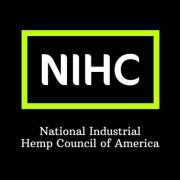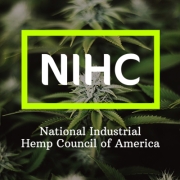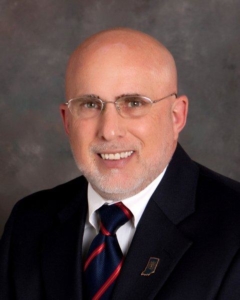
 We caught up with busy Patricia Sheikh, NIHC board member and Senior Vice President, Programs, for Roots of Peace, to discuss NIHC, diversity and the future of industrial hemp.
We caught up with busy Patricia Sheikh, NIHC board member and Senior Vice President, Programs, for Roots of Peace, to discuss NIHC, diversity and the future of industrial hemp.
In her work in the agricultural sector, Roots of Peace is a non-profit organization, with headquarters in California, that helps conflict and post-conflict regions and countries. Their philosophy is to provide market-driven solutions tailored to farming communities of war-torn lands, serving as a catalyst for industry-wide development. By improving farm techniques, addressing supply chain gaps, and supporting local exporters in reaching high-value markets, the organization improves livelihoods and contributes to building peace in war-torn lands.
“The conflict area we are currently focused on is Afghanistan, and the post-conflict country is Vietnam. You would think we wouldn’t have to go there,” Sheikh says referring to Vietnam, “but there are still issues related weapons of war still in the ground that adversely impact smallholder farmers.”
“Root of Peace helps countries rebuild and modify agricultural systems,” she says. “We help them build back their agricultural economy – things like convert from one crop to another – then export it. We look at the full value chain, seed to table. Small holder farmers are not left out of the equation, and they get a return on their money.” A strong agricultural system helps a county increase economic independence and thereby reduce potential for future conflict.
Here is our interview with Sheikh.
What is your view of the work of NIHC, and how you came about being involved?
I am a retiree of Foreign Agricultural Service, USDA. When NIHC board chair Patrick Atagi was a political appointee under President George W. Bush, I got to know him. He was serving as Deputy Director, Intergovernmental Affairs, USDA. I was then Deputy Administrator, International Trade Policy, Foreign Agricultural Service, USDA. Our interactions go that far back.
When he launched NIHC, he thought of me for the board position because I know international trade very well. At that point in my career, I oversaw all international trade – mostly trade with Asia. Personally, I like working in the big markets like China, Japan and India. Patrick knew that my background could prove beneficial once industrial hemp industry comes into full potential.
What inspired your work with hemp conferences, you have moderated and participated in several, how do events like this help hemp the industry?
I see the hemp commodity as a very important export. It has the ability like no other crop to revitalize the U.S. agricultural sector. I participated as the event moderator in the February 2021 Oregon State University Global Hemp Innovation Center’s National Hemp Symposium because it was an opportunity to hear from many of the sectors in which industrial hemp has great opportunity.
The crop spans many industries, and we heard from energy and biofuel, manufacturing, automotive and transportation, retail, apparel, health and beauty sectors – even the defense sector presented. I have never seen a crop like hemp and it’s exciting; we needed something that can boost our agricultural sector and hemp can do it.
We have to keep the conversation moving forward in the United States. China, the EU and Canada all have vibrant hemp programs. They didn’t experience a shutdown of the crop like the U.S. who made it illegal due to the drug aspect of the plant. We cannot be frightened by the work ahead to catch up; we must keep a steady pace. NIHC is a big part of that effort, especially on the regulatory and trade aspects due to the experience of the entire board and the NIHC team. Patrick wants board members to network and lend guidance on other advisory boards, representing the work of NIHC, when they arise.
What are your views of minorities and women in agriculture and how is it changing?
Ag is a very conservative industry. There are very few women at the top of agricultural companies or even on boards, as well as other minorities. As the first – not the only – woman in the NIHC board, it doesn’t bother me. I will offer suggestions in the future for other women to join our board if their experience fits the needs, but I have to say Patrick has been keen at making sure we have a diverse group, and we have a board of various backgrounds and ethnicities. NIHC is leading and paving a path forward.
To encourage hemp farming among diverse groups of people, including minorities, I think there has to be increased education about hemp. There is still so many misconceptions of hemp. I have to correct people on the product. I am not sure how informed African-American farmers and others are about this particular commodity.
I think seeing the potential in all these sectors mentioned at Oregon State University’s conference was so powerful for participants. It shows that that there is room for everyone. We warmly invite more people to the table.
Tell us about your work with former Ambassador from Zimbabwe to U.S. on hemp industry and other initiatives in which you may be involved in?
That is a very interesting question. Ambassador Mutembwa was Zimbabwe’s Ambassador to the United States. He was very familiar with hemp because of his country’s interest in ramping up growing this commodity.
The Ambassador was looking for people who wanted to invest in their country’s hemp production. Because of my background in developing countries and agricultural systems, we connected on that effort. They were not necessarily looking to export to U.S. since their natural market is the EU. He really saw, as a developing country, how hemp could help propel economic development in his country.
Unfortunately, the Ambassador has completed his assignment in U.S., and is now Zimbabwe’s Ambassador to Brussels. I am hoping the new U.S. Ambassador will pick up on the effort, but it is too early to tell.
Where do you see the industry in five years?
If we play our cards right and produce more positive messages about hemp– especially the farmers potential to grow hemp and monetarily profit from doing so – and additionally having a market for it which is still in development, the hemp industry will grow very large.
Unlike cotton and other crops, hemp doesn’t need as much water to grow, It is a crop that is environmentally-friendly and as I have said previously it has a multitude of uses. We will get to a comfortable position for this commodity, it just will take time combined with consistent effort by leadership organizations such as the NIHC.
What are the pathways to a thriving industrial hemp economy?
One thing is advising government. We have begun that process as NIHC is serving on some advisory committees for U.S. government agencies that are addressing hemp and agriculture.
Positive safety initiatives is another. We must get the FDA to engage and intensify its efforts. To ensure the consumer is safe when hemp is used in products they ingest or use topically. Some products are in the marketplace that have not been fully vetted. It is a great sign that these are appealing to the public, but we need consistent standards set by the federal government to continue to grow the marketplace.
We need to keep interactions with Congress moving forward. Hemp has bipartisan support, as seen by both sides overwhelmingly voting in favor of the Farm Bill. As you know recently, it has been a challenge to obtain bi-partisan support for legislation.
States that are hesitant will come along once they see momentum building and factual support for this commodity. They will have to.
Getting factual data is a must. It is exciting to see University’s like Oregon State gearing up their research so we can have this data. Having our own data will corroborate what we know from the European research already available.
Trade competition is a healthy instigator. China is moving full steam ahead. EU and Canada are too. This should inspire action from the U.S.
Are you excited to attend the NIHC 2021 Hemp Business Summit?
I was at the first summit in 2019, where we had to turn people away because we had exceeded our capacity level. It was a great success and there was so much enthusiasm and support among attendees. I look forward to the next one in November, and I know the information shared will take us further along this exciting journey. The conference will benefit anyone in the industry who is looking at the potential of hemp for their company or for their state.














 At present, most if not all banking service providers take a risk-management approach to hemp business customers that presumes that they may be held liable for their clients’ compliance with USDA regulatory requirements, even though these laws have no explicit bearing on the legality of hemp in commerce. (All hemp is legal for commerce nationwide if it meets the statutory definition of hemp, without regard to the USDA Rule).
At present, most if not all banking service providers take a risk-management approach to hemp business customers that presumes that they may be held liable for their clients’ compliance with USDA regulatory requirements, even though these laws have no explicit bearing on the legality of hemp in commerce. (All hemp is legal for commerce nationwide if it meets the statutory definition of hemp, without regard to the USDA Rule). As in most farm bureaus, at the Indiana Farm Bureau (INFB), they have a vision to keep agriculture in Indiana strong and vibrant, to provide quality food to Indiana residents and to protect the rural life they love. They are the largest grassroots farm organization in the state with more than 250,000 members, and offices in all 92 counties. Started in 1919, INFB is well-positioned as the Voice of Indiana Farmers, and well-equipped to assist the farmer to leverage industrial hemp.
As in most farm bureaus, at the Indiana Farm Bureau (INFB), they have a vision to keep agriculture in Indiana strong and vibrant, to provide quality food to Indiana residents and to protect the rural life they love. They are the largest grassroots farm organization in the state with more than 250,000 members, and offices in all 92 counties. Started in 1919, INFB is well-positioned as the Voice of Indiana Farmers, and well-equipped to assist the farmer to leverage industrial hemp.












